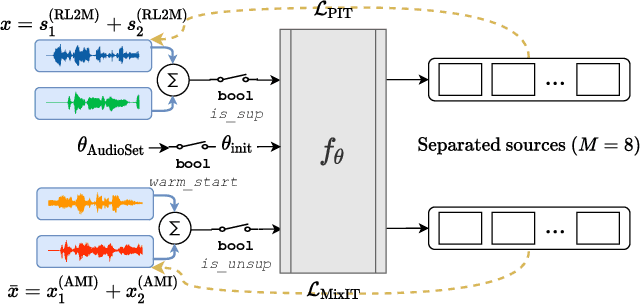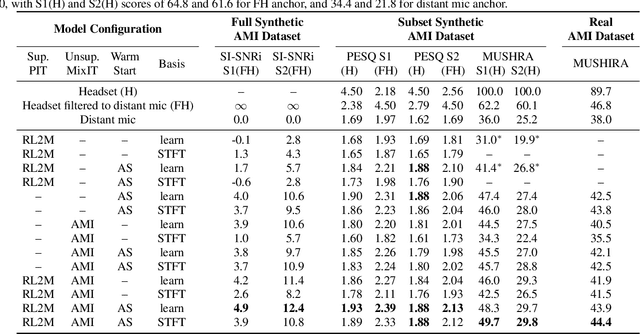Adapting Speech Separation to Real-World Meetings Using Mixture Invariant Training
Paper and Code
Oct 20, 2021

The recently-proposed mixture invariant training (MixIT) is an unsupervised method for training single-channel sound separation models in the sense that it does not require ground-truth isolated reference sources. In this paper, we investigate using MixIT to adapt a separation model on real far-field overlapping reverberant and noisy speech data from the AMI Corpus. The models are tested on real AMI recordings containing overlapping speech, and are evaluated subjectively by human listeners. To objectively evaluate our models, we also devise a synthetic AMI test set. For human evaluations on real recordings, we also propose a modification of the standard MUSHRA protocol to handle imperfect reference signals, which we call MUSHIRA. Holding network architectures constant, we find that a fine-tuned semi-supervised model yields the largest SI-SNR improvement, PESQ scores, and human listening ratings across synthetic and real datasets, outperforming unadapted generalist models trained on orders of magnitude more data. Our results show that unsupervised learning through MixIT enables model adaptation on real-world unlabeled spontaneous speech recordings.
 Add to Chrome
Add to Chrome Add to Firefox
Add to Firefox Add to Edge
Add to Edge